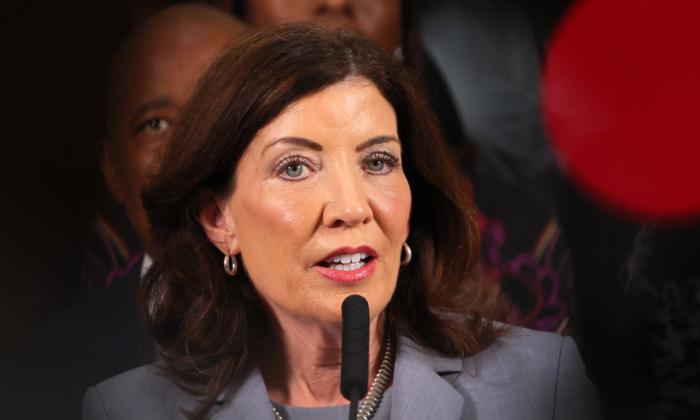Those surveyed hold short-term and medium-term expectations for inflation above pre-pandemic levels.
Consumers said they expect the cost of food, rent, fuel, education, precious metals, and medical care to rise more slowly in the year ahead.
The survey also showed that the median household expects one-year-ahead earnings growth to rise by 3 percent, the same as last month, higher than last year’s average gain estimates of 2.6 percent.
However, the survey results marked the first time since October 2020 that one-year inflation expectations decreased, dropping to a median of 5.8 percent in January from 6 percent in December.
Inflation expectations for the next three years declined to 3.5 percent in January from 4 percent in December, the largest monthly drop since the survey was launched in 2013.
Continuous high inflation has led central bank officials monitoring inflation to pivot toward a tighter monetary stance to help stave off rising prices after major public pressure over their delayed response.
“These findings indicate that consumers are taking less signal than before the pandemic from inflation news in updating their longer-term expectations, and that they do not view the current elevated inflation as very long-lasting,” wrote the economists.
They report that consumers seem to recognize the current situation behind the latest bout of high inflation.
“This result suggests that while consumers are highly attuned to current inflation news in updating their short-term inflation expectations, they are taking less signal than before the pandemic from the recent sharp movements in realized inflation when revising their three-year-ahead expectations,” concluded the researchers.
The Fed‘s next policy meeting is set for March 15–16, when officials are expected to announce the first round of interest rates hikes to contain rising prices.
Some economists are urgently calling on the central bank to begin with an aggressive start—a half-point increase.
Although inflation is expected to return to more manageable levels according to analysts, the combination of inflation and unemployment will take some time to go down.





